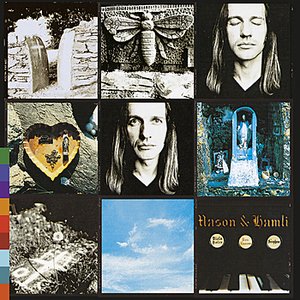Resonance
When a string vibrates, it generally does so at its natural frequency. An external sound wave at this same frequency can induce resonance in the string, causing it to vibrate sympathetically. This applies to other physical systems with natural frequencies, too. If you sing the right pitch in a short enough room, you can cause a resonance which makes your note much louder than it would otherwise be.
Iarla Ó Lionáird uses the resonance of an open piano to great effect in this song:

I think the concept of resonance presents a good model for thinking about musical communication.
Music as recording
This is in contrast to a common model of music as a sort of direct experience transfer, which I sometimes see people espouse. To this way of thinking, music is a method of “translating” an idea, feeling, or experience into a medium, which then can be received whole by the audience. Perhaps the implicit model here is that of a recording, since we are so used to faithfully recorded music that does a decent job of directly transferring the auditory experience.
Music as resonance
To me, resonance does a better job of describing the mechanism and point of musical communication. In this metaphor, the music is the external sound waves and the listener is the resonating body. Resonance doesn’t just depend on the sound, but on the shape of the resonating body. Depending on the listener’s own “natural frequencies”, which is to say, different aspects of music will resonate differently with different listeners.
For composers
For a composer, the resonance model sets your priorities right. You’re not trying to directly place an idea in someone else’s mind, but as a human being you have some understanding of what resonates with others. You try to leverage that understanding to make music that has potential to resonate, perhaps with a particular audience, or maybe with the whole world.
But there is a humility in recognizing that the process is lossy, to a degree. What you write may not always land the way you wanted it to for a given listener, and that’s really nobody’s fault. And on the flip side, your music may resonate with others in ways you never even expected.
What do you think of resonance as a model for musical communication? Do you have your own way of thinking about it? Let me know your thoughts at alex@musical.garden.